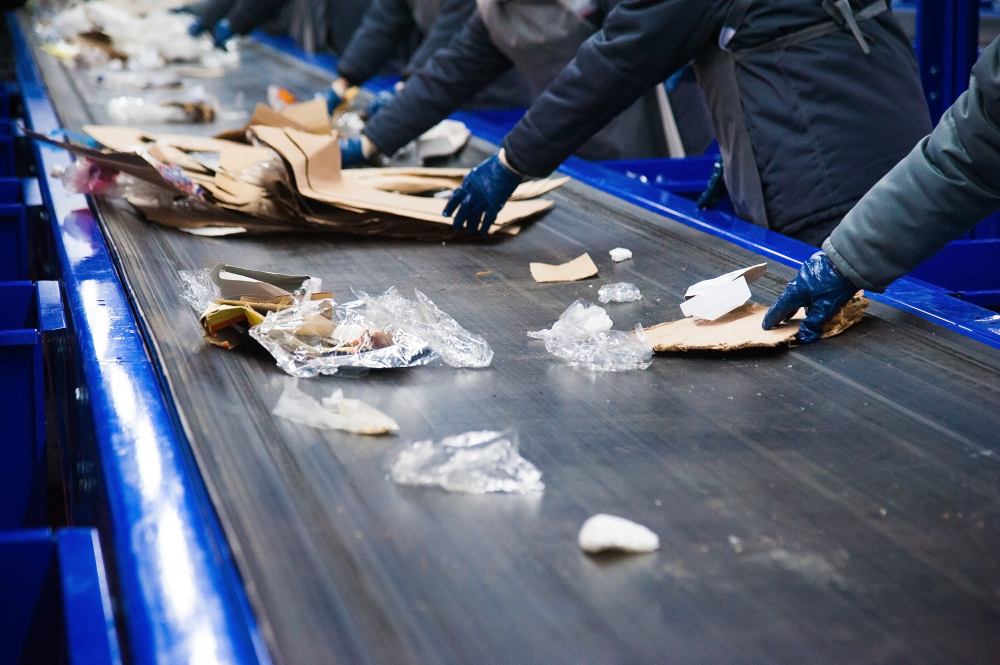The Chancellor outlined a set of economic measures in his new budget last week (17 November), which included taking the national living wage rom £9.50 to £10.42 for people aged 23 and over, effective from April 2023.
For those under 23, the minimum wage rates have also increased, as outlined below.
This represents an increase of around 10% and is set to affect boost pay of around two million low-paid workers.
There is potential for the increase to impact the waste and recycling sector due to the low-paying nature of certain positions within it, for example pickers at materials recycling facilities (MRFs) and some textile sorters. However, the extent of the impact the measure will have is debated.
Nick Eva, managing director at Waste Recruit, a recruitment company specialising in the sector, told letsrecycle.com he didn’t think the hike was going to have a massive impact. Mr Eva reasoned that this is partly due to the fact that the salary increases are negligible in comparison to the cost of living increases and energy costs. “Energy costs are the big issue for most companies and can be tens of thousands a month,” he added.
Others however, say the move will hit some sectors of the industry more than others.
Wage increase
Mr Eva explained: “Companies are almost resigned to the small salary increases to some extent”.
He used the example of the issues with HGV driver shortages, which saw driver salaries “going up almost weekly” in order to keep hold of them.

“The increase in minimum wage may affect the waste sector and cause a bit of an issue but in the greater scheme of things, it’s not the biggest cost increase,” he outlined.
Mr Eva, however, pointed out that though the minimum wage might have increased, the lower earnings tax-free limit is going to freeze, resulting in employee pay being “negatively impacted” over the next three to five years.
“The cost of living goes up and real time wages are going to go down, so the amount of tax paid is going to increase. I’m not convinced everyone really wins,” Mr Eva noted.
‘Ethical question’
With recent staff shortages, many companies also looked to increase pay where possible to retain staff.
Waste Recruit’s managing director said not many employees are still on minimum wage, pointing out that this poses an “ethical question”. He also raised the issue of some MRFs employing immigrant workers, for example from Eastern Europe.
“At some MRFs, pulling the thread on the viability of employing people from Eastern Europe on minimum wage can reveal a problematic area. It’s the age-old problem in the UK – immigration is one of the ways of keeping up our workforce,” Mr Eva remarked.
“When you pull the thread on the viability of employing people from Eastern Europe on minimum wage, it’s a problematic area. It’s very difficult for companies – Brits won’t do that kind of work. That’s the age-old problem in the UK. Immigration is one of the ways of keeping up our workforce and we need the immigration and the workers in.”
Textiles sector
On the other hand, Textile Recycling Association’s CEO Alan Wheeler highlighted that the increase in minimum wage is going to further contribute to a squeeze in profits that the sector has been facing.

“Expenditure is going to have an effect on a textile collection and sorting business’s prospects, and there are many factors that are coming into play in our sector at the moment,” Mr Wheeler said.
He added that an additional issue textiles collectors and sorters is currency fluctuation in many countries that the sector trades with. “A lot of our trade is with Sub-Saharan African countries. They’re having to pay more because their currencies are struggling. The value of the Ghanaian Cedi has dropped by more than half against the pound in the last 12 months.”
Mr Wheeler continued that this makes it difficult for traders in the West to pass on their increased costs, where other segments of the waste and recycling sector might be able to. “It’s not just wages, it’s fuel costs and the general inflationary rises we’re experiencing at the moment,” he concluded.












Subscribe for free